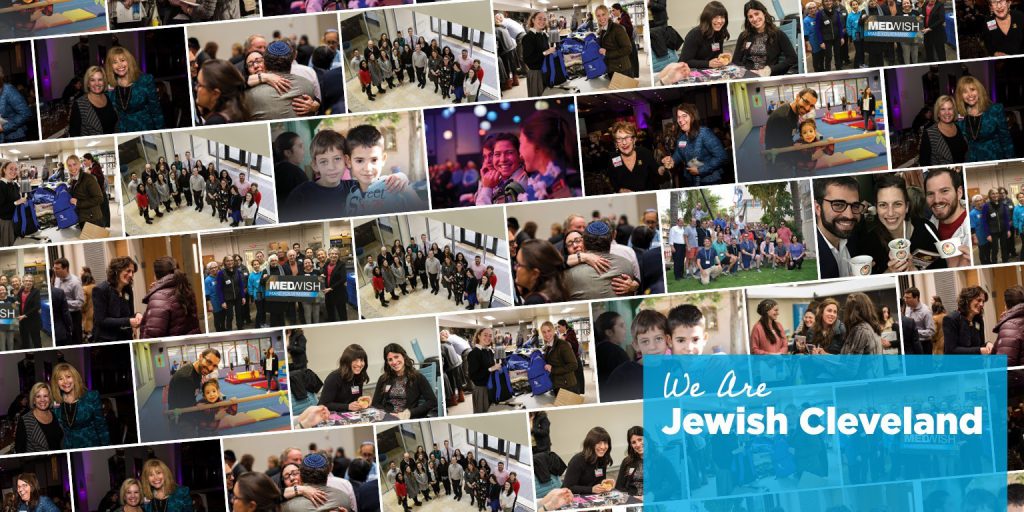
Overview
Eva Heinstein
In late May, we hosted the first seminar for Cohort III of the Executive Leadership program. The theme of the seminar was the diversity of the North American Jewish community, which we explored through a mix of faculty-led sessions, spaces for peer reflection and a live inquiry project. The seminar fell shortly after the release of the 2020 Pew study on Jewish Americans, which made the theme particularly resonant for fellows and faculty alike.
Due to ongoing health and travel restrictions, we ran the seminar virtually, leaning into the limitations and opportunities that an online format offers. Following our experience developing a virtual case consultation with Jewish Silicon Valley for Cohort II in the fall, we were eager to design another inquiry project in collaboration with graduates of our program. We found a timely opportunity with the Jewish Federation of Cleveland, in collaboration with graduates Erika Rudin-Luria (President) and Abbie Levin (Senior VP of Operations), to support qualitative inquiry in the lead-up to their community study.
We co-designed a project to interview a diverse range of Jewish Clevelanders about their values, spiritual lives and connections to community. Erika and Abbie identified a number of community segments that Federation wanted to focus their learning on, including groups that might be hard to reach via survey research methods.
Over two intense seminar days, fellows worked in small groups to develop conversation guides and conduct thirty interviews with Jewish Clevelanders recruited by the Federation. Fellows interviewed community members in pairs and analyzed material from the conversations to surface themes, fresh observations, and questions that may be relevant for the Federation’s community study. The interviews included universal and Jewish-specific questions to explore the myriad ways informants find community, express their values and political commitments, and engage in spiritual and cultural practices.
The project also served as a framework for fellows to integrate skills and concepts from faculty-led sessions. Deborah Ancona’s teaching on sensemaking and relating and David Stolow’s session on inquiry and entrepreneurship armed fellows with new language and skills for collecting and interpreting community-level insights. Fellows also had the opportunity to contextualize Sarah Benor’s teaching on national demographic trends in the Jewish community, Dan Judson’s exploration of the cyclical theory of Jewish history, and Devora Steinmetz and Mara Benjamin’s sessions on new expressions of Jewish spirituality and meaning-making.
Fellows remarked that while so much of their work is focused on community building, it is rare to have open-ended learning conversations with community members. They found it energizing to engage in this kind of inquiry outside of their communities, where new ideas and connections could emerge free from the pressures of organizational agendas and strategies. At the end of the two-day project, fellows had time to explore whether they might incorporate more community-based inquiry into their work, and how regular sensemaking could improve their ability to respond to the evolving needs of their communities. Below you will find brief reflections from fellows as well as Abbie Levin that highlight meaningful moments and takeaways from the project.
Reflections from Cleveland Federation Staff and Executive Leadership Program Fellows
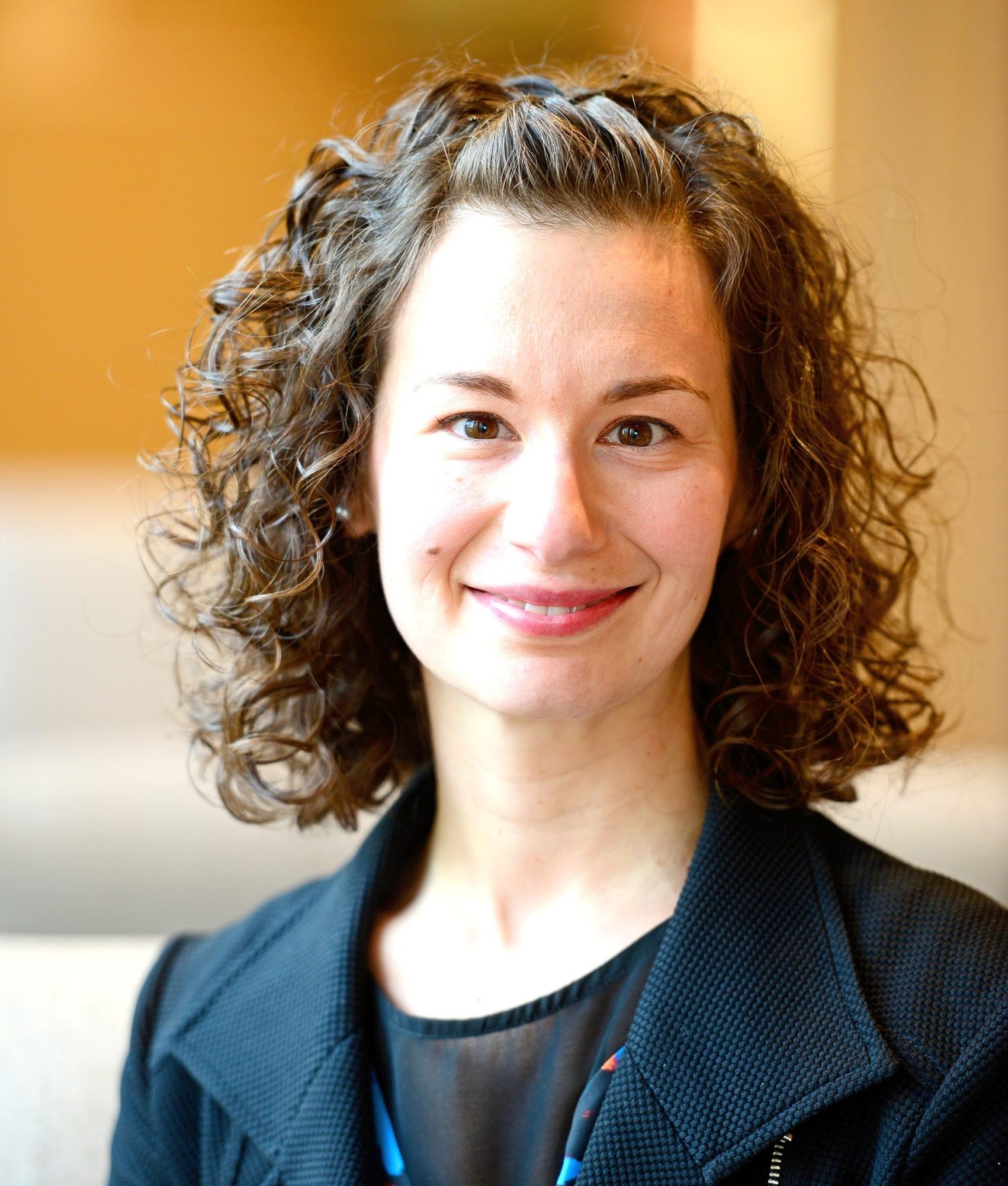 Abbie Levin
Abbie Levin
Senior Vice President of Operations, Jewish Federation of Cleveland; Cohort I Graduate
It was a true pleasure to partner with the Mandel Executive Leadership Program faculty to design an inquiry project on our Cleveland Jewish community. Together, we gained insight from individuals in our local Jewish community and promoted learning among the fellows within the program’s third cohort. The Mandel fellows displayed curiosity, empathy, and knowledge. Reflecting on this experience helped us challenge our assumptions, strengthen our hypotheses, and more deeply understand the beliefs, behaviors, and sense of belonging among various population segments within the community. While themes emerged, we understood that each individual brought unique background and experience to the process. We learned the value of inviting others into a conversation, that relationships matter, the importance of expressing gratitude, and much more. This experience will most certainly help to inform how we care for our Jewish community and ensure its vibrancy and vitality in the years to come.
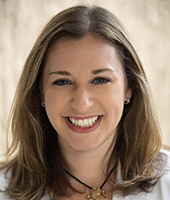 Abbey Feinberg
Abbey Feinberg
Cohort III Fellow
Through the inquiry project, my team was able to do a deep dive into the Russian speaking Jewish community, learning about their history and current trends. I certainly broadened my interviewing skillset, but it was the insightful and meaningful conversations that left a lasting impact. The people I spoke with were filled with gratitude to the organized Jewish community, in particular the Jewish Federation of Cleveland. They all referenced the community’s actions in helping their families move to the United States and acclimate for years after arrival. They are actively involved now, paying it forward. During the conversation, the interviewees reflected on meaningful Jewish experiences and what values drive their actions today. I was moved to be part of several “aha” moments and the interviewees often thanked us for letting them tell their stories. At the conclusion of our final interview, the young woman hurried to get off the call, eager to call all her parents to thank them for the incredible sacrifices they made so that she could live her life proud and free as a Jew in America.
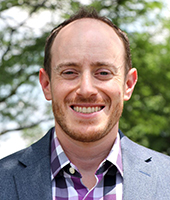 Ronnie Conn
Ronnie Conn
Cohort III Fellow
One of the highlights of my first Mandel Executive Leadership Seminar was our inquiry project. Our cohort was given the opportunity to collaborate with the Jewish Federation of Cleveland to collect data that will help inform the structure of their upcoming population study. My group had the honor to speak with different members of Cleveland’s Orthodox community. The interview process forced me to think about my own community here in Columbus and outline steps that I would like to take to better understand the community I serve. It was heartwarming to hear from different interviewees about the importance of giving back to the community as a central part of their identity. Additionally, the variety of experiences and perspectives I heard highlighted that diversity of opinions, religious practice and civic engagement exist within every denomination of the Jewish community.
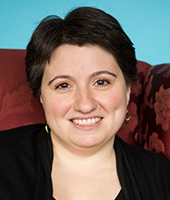 Liv Mendelsohn
Liv Mendelsohn
Cohort III Fellow
“My heart is Jewish. My life is Jewish. I want to know that other people see that.” This sense of yearning for belonging and for the community to see and to value Jews of Colour came through over and over in our interviews with a diverse group of Jews of Colour in Cleveland. We interviewed people born Jewish and Jews by choice from several different ethno-racial backgrounds.
While they differed in their ages, their politics, and their Jewish journeys, to a one each of the interviewees was passionate about living a Jewish Life and very actively involved in their communities as professionals, lay leaders, or regular participants. While the term “Jews of Colour” itself was contentious as an umbrella term for this group, there was a sense from each of them of that Jewish values and Jewish practices have been transformative in their lives, and that they want the organized Jewish community to do more reaching out: “I want to be connected, invited.”
Everyone we spoke to centered the importance of Jewish Education in their journeys – whether as children, as educators, as parents, or as part of conversion processes. Jewish Education was seen as full of potential – in diversifying day and supplementary school curriculums, in bringing adults together across racial and cultural divides. Some had experienced racism in Jewish educational settings and they all agreed that more can and should be done to create inclusive learning environments.
There was a strong desire to have the community create opportunities to learn more together about Jewish diversity and the diversity present in Israel. And out-of-shul experiences like the Shabbaton were cited as places were people found freedom, confidence and acceptance.
This learning experience, designed to give Mandel Fellows the opportunity to engage in sensemaking, allowed for a shift from talking about ‘big Jewish questions’ of demography, continuity and strategy. The immersive opportunity to listen deeply allowed me to take time, to slow down and be present. In tracing these stories and mapping out the connections, concerns and hopes shared, we came to the same ‘big Jewish questions’ from a different context and with deeper understanding. What an honour to sit (virtually!) with people who care so much about their Jewish Cleveland community and our collective Jewish future.
